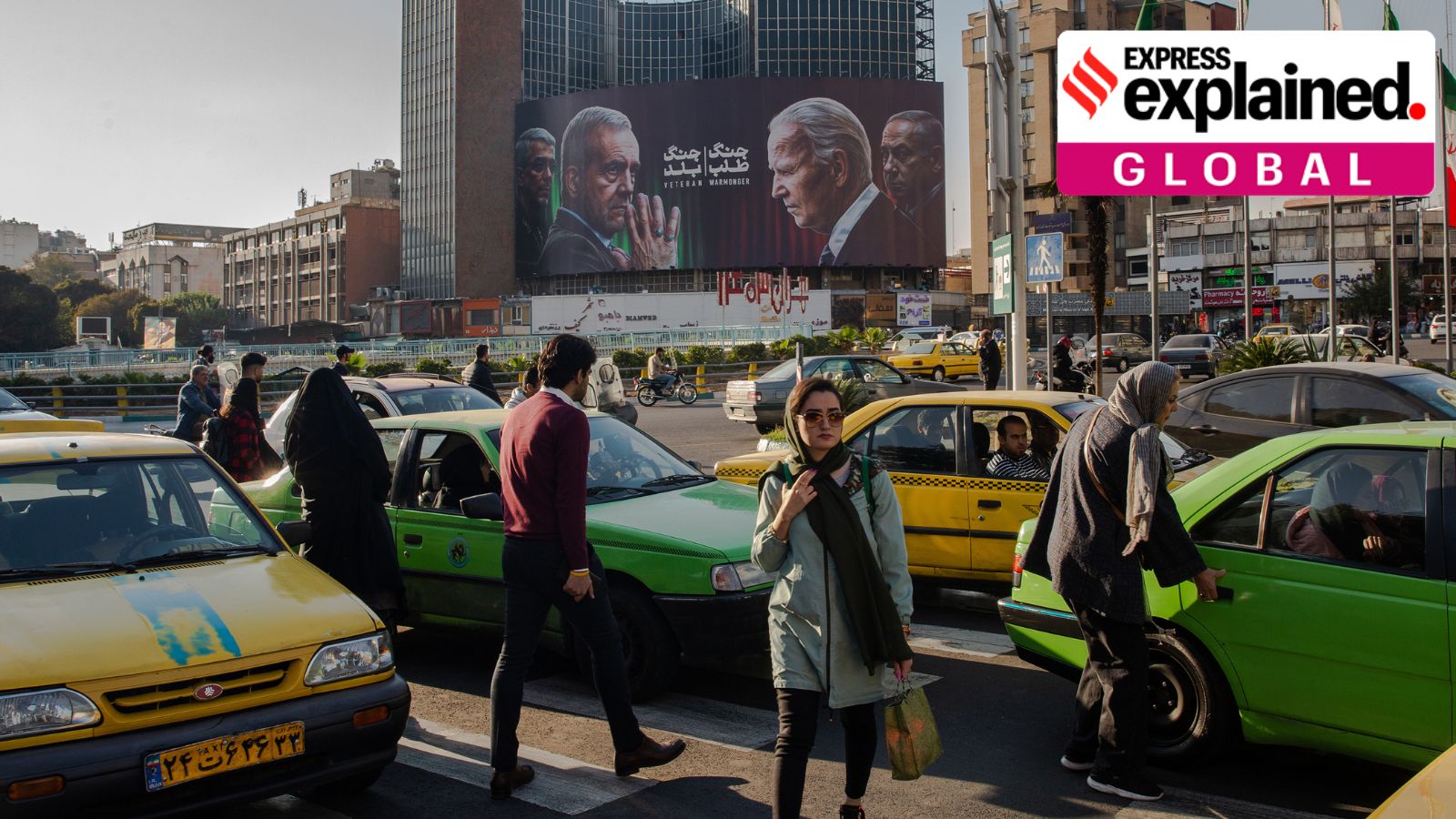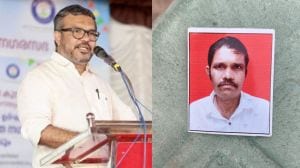How will Iran respond to Israel? Here is what different Iranian leaders have said so far
The UN Security Council will convene an emergency meeting on Monday at Iran’s request following Israel’s attack on Iran on Saturday. Iran accused Israel of violating the UN charter and has promised to use "all available tools" in response.
 A new billboard depicts President Biden and Prime Minister Benjamin Netanyahu of Israel as “warmongers,” in Tehran, Oct. 27, 2024. Israel’s prime minister said Israeli airstrikes on Iran had achieved their goals, and Iranian officials did not threaten retaliation. (Arash Khamooshi/The New York Times)
A new billboard depicts President Biden and Prime Minister Benjamin Netanyahu of Israel as “warmongers,” in Tehran, Oct. 27, 2024. Israel’s prime minister said Israeli airstrikes on Iran had achieved their goals, and Iranian officials did not threaten retaliation. (Arash Khamooshi/The New York Times)The UN Security Council (UNSC) will convene an emergency meeting on Monday (October 28) at Iran’s request following Israel’s attack last Saturday.
The Islamic Republic News Agency (IRNA) reported that Iranian Foreign Minister Abbas Araghchi wrote to the UN Secretary-General and the UNSC President urging the council to take action on the consequences of the “continuous and systematic” Israeli aggressions. Araghchi had flagged the attack as a violation of the UN charter.
While it has long maintained its unwillingness to join Israel’s war in the Middle East, Iran on Monday promised to use “all available tools to deliver a definite and effective response to the Zionist regime (Israel)”.
Will Iran strike retaliatory fire on Israel? Here is what different Iranian leaders have to say.
Ayatollah Khamenei: “Do not exaggerate or underplay the attack”
The Supreme Leader of the Islamic Republic, Ayatollah Khamenei on Sunday said that the “latest mischievous act of the Zionist regime” should not be exaggerated or downplayed, calling both of these wrong. He issued a warning to Israel, saying Israel had “miscalculations towards Iran” and was unaware of the people’s resolve and determination.
The Ayatollah left the decision of retaliatory action to the country’s leaders to do as they saw fit in the country’s best interest.
“What preserves the security of a country is its national power, the strength of that country, being strong in all aspects; strong in science, strong in economy, strong in defence, strong in armaments. These maintain and ensure the security of the country,” he said.
The Ayatollah decried foreign governments and the United Nations for failing to end the war in Gaza and Lebanon. He appealed for a global coalition “against the malicious Zionist regime that is committing the most brutal war crimes today.”
On Monday, social media site X suspended his Hebrew-language account for violating the website’s terms. The account, newly created a day earlier, featured a post with remarks from his speech that day, and read “The Zionist regime made a mistake” and “erred in its calculations on Iran” in choosing to attack Iran. His accounts in other languages remain active on the site.
Iranian government: Not looking for war but will fight
On Saturday, Iran’s foreign ministry asserted Iran’s right to self-defence against external aggression, but it was committed to upholding its “responsibilities for regional peace and stability.”
On Monday, the ministry’s spokesperson, Esmail Baghaei Hamaneh said that Israel was “emboldened by impunity”, and that Iran was duty-bound to respond firmly despite current talks. He added that Iran did not plan on using nuclear energy militarily “considering both the fatwa (religious order) of the country’s highest political official and logical assessments”.
Hamaneh also said that the country had engaged in diplomatic measures since the onset of the war in Gaza and that continued diplomacy was key to preventing the spread of an all-out war in the region.
Iranian President Masoud Pezeshkian said on Sunday that Iran did not seek war, but would “give an appropriate response to the aggression of the Zionist regime.”
Islamic Revolutionary Guard Corps: condolences, bitter consequences
Major General Hossein Salami, Commander-in-Chief of the Islamic Revolutionary Guard Corps (IRGC), the primary military force in Iran promised bitter consequences following Saturday’s attack. He also offered his condolences for the deaths of the four military personnel in the attack.
What we know about Saturday’s attack
On Saturday, Israel launched targeted airstrikes on Iran to retaliate for the latter’s attacks at the start of the month. Iranian authorities asserted that the strikes had caused “limited damage” in the targeted sites in Tehran, Khuzestan and Ilam, and that the country’s air defences “successfully intercepted” the attacks. Four Iranian soldiers were reportedly killed in the attacks.
Saturday’s attack by Israel marks the first time the country has engaged in overt cross-country violence since its war in the 1980s with Iraq.
Iran does not recognise Israel’s right to exist and supports multiple groups in West Asia against the Israeli occupation of Palestine, most notably Hamas and Hezbollah. Saturday’s attack was reportedly a retaliation against Iran’s airstrikes on Israel, protesting the Israeli assassinations of Hamas and Hezbollah leaders.
President Pezeshkian last month had accused Israel of provoking Iran to join the conflict between Israel and Hezbollah, and warned of “irreversible consequences” if a full-blown war erupted in West Asia.
- 01
- 02
- 03
- 04
- 05






































